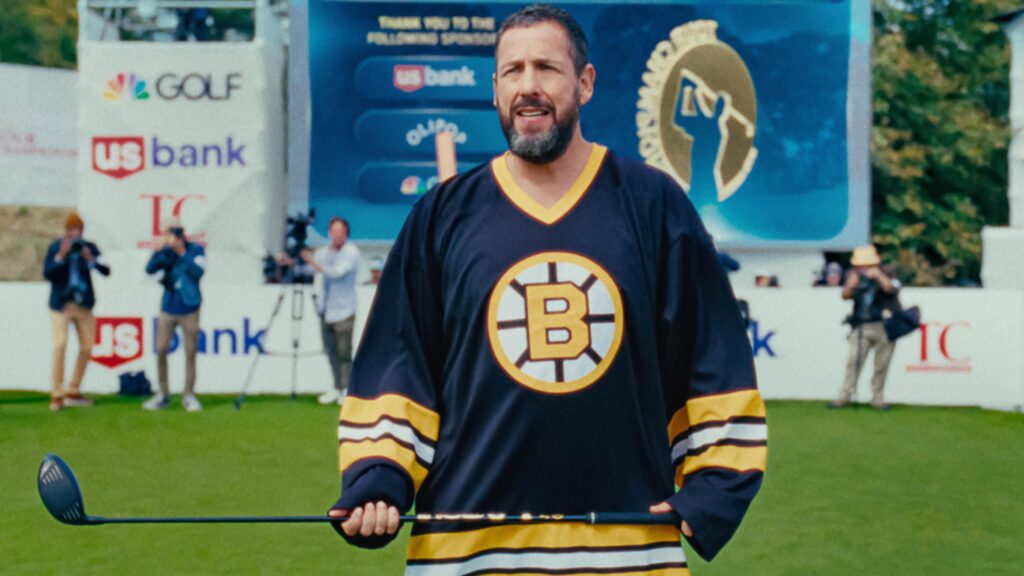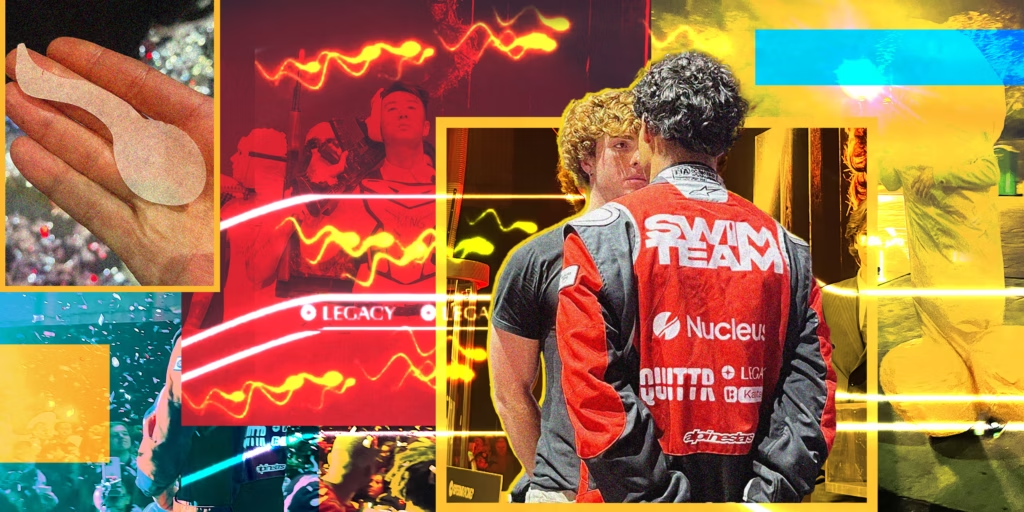The word “woke” has been weaponised. Look at almost any headline on the matter and you’ll find it used as an insult, another sign that this country has lost its live-and-let-live mentality and is headed straight for the dogs. And the targets are indiscriminate. In recent months, the media has labelled the following things as woke: the Oscars, private schools, corporations, the ABC, the concept of social distancing, Disney World, children, the Church of England and a video game called CyberPunk 2077.
In reality, “woke” just means that you’re alert to injustice. It means that you’ve opened your eyes and noticed the world around you. In most sentences, you could easily substitute it with the word “compassionate”. And being compassionate benefits you as much as others. Research suggests that a kinder, more considered lifestyle is linked to decreased depression, reduced stress, lower blood pressure and better recovery from illness. According to a study by the University of Michigan, it can even make you live longer. Plus, both men and women state that kindness makes a person more attractive. So, there’s that.
But there’s one problem. To be woke is to understand a dictionary’s worth of jargon that couldn’t seem any more impenetrable. Luckily for you, I’m here with a quick glossary. Read this, absorb it and change the world. Or perhaps just your outlook.

BAME
Adjective.
A term that exploded in popularity a few years ago, BAME – or black, Asian and minority ethnic – basically means “not white”. You’ll see it used in lots of nervously worded job ads, invariably from businesses in the middle of having a panic attack about how relentlessly Caucasian their staff is. However, don’t say “BAME”. Don’t call anybody “BAME”. Personally, I have never met a single non-white person who approves of the term. It gives the impression that white people have drawn a circle around themselves. Inside the circle is “us”,
and outside of the circle, regardless of where anyone was actually born or has lived, is “BAME”. It’s the “here be dragons” of inclusivity and should generally be avoided.
LISTEN: The Not BAME Podcast, a black millennial view on politics.
BoPo
Noun.
Short for “body positivity”, a movement that celebrates the human body in all of its forms and rejects the idea that everyone should strive to conform to society’s narrow ideals. Pioneered by women, the movement has more recently been adopted by male activists. It’s also an issue that is riddled with complexity, as evidenced by the fact that I’m writing this in a magazine that more likely than not will feature a stern-looking, ripped man with his top off a few pages along.
FOLLOW: @Bopo.boy on Instagram.
Black Lives Matter
Noun.
A movement that rose after a disproportionate number of black people were killed by American police officers. The aim of Black Lives Matter is anti-racism: a rejection of overt, covert and systemic discrimination against black people. Importantly, the phrase does not mean that only black lives matter. It means that black lives deserve the same protection as everyone else’s.
READ: They Can’t Kill Us All by Wesley Lowery.
Bropropriate
Verb.
This is when a man takes a woman’s idea and soaks up all the glory from it.
SAY: “Stuart Heritage bropropriated this feature from his editor, Scarlett Wrench, who came up with the idea in the first place.”

Cancel Culture
JK Rowling was “cancelled” for tweeting her views about the trans community. However, you’ll notice that JK Rowling still writes books, which probably means that cancel culture doesn’t actually exist.
DON’T SAY: “I have been cancelled. And I will now tell you about it in my newspaper column.”
Cis
This is derived from the Latin meaning “on the side of”, which is the opposite of the prefix trans, which means “across from”. The term’s modern usage began when German sexologist Volkmar Sigusch coined it in his 1991 article “Die Transsexuellen und unser nosomorpher Blick”. Cisgender basically means not transgender. I probably should have just said that to start with.
READ: The Gender Games by Juno Dawson.
Clicktivism
Basically, the bare minimum that anyone can do to help a cause. It’s a name on
a petition that isn’t backed up with anything more substantive. It’s a mindless“like” click on Twitter. It’s a Twibbon. After the murder of George Floyd, millions of people posted a black square on Instagram, which made them feel like they were contributing in someway, even though not all of them were. Clicktivism is less about actually helping the oppressed and more about signalling to the rest of the world that you don’t want to be associated with the oppressors.
WATCH: Clicktivism Is Bad for Charity by the Feed on YouTube.
Conscious Capitalism
The idea that the power you wield as a consumer can be used for either good or bad. So, imagine you want a new T-shirt: do you buy it on Amazon, handing your money to a multinational giant with a record of not paying a lot of tax and a rep for treating its workers poorly? Or do you buy it from an indie company that is sustainable and treats people fairly? Why are you taking time to think, you monster?
DON’T SAY: “Here’s another tenner, Bezos.I hope it helps you afford that Bond villain lair you’ve had your eye on.”
Cultural Appropriation
When Justin Bieber unveiled his dreadlocks, the world exploded with anger –
not because they made him look like a gap-year trustafarian, but because dreadlocks are traditionally a black hairstyle, and this was seen as a sign that he was cherry-picking from black culture without engaging with its underlying issues. Food, clothing and music, can be appropriated, too. It’s tricky, as nobody knows where the line between appropriation and “liking new things” is.
DON’T SAY: “Are you going to wear your Native American headdress to the twerking class?”

Fast Fashion
Cheaply made, low-quality clothing designed to be thrown away after a few wears. Fast fashion banks on overproduced trend pieces that can be farmed out to shops in almost
real time, and it results inworkers who are paid muchless than the minimum wage, factories that churn toxic chemicals into water supplies and a carbon footprint that rivals the aviation industry. A better and equally cost-effective tactic is to buy fewer, better-made clothes from smaller brands.
READ: How to Break Up with Fast Fashion by Lauren Bravo.
Flexitarianism
A halfway house between eating meat every day and being vegetarian, in that you still eat meat, just not all of the time. Some might argue that this is a cop-out, but the evidence suggests that it’s a good thing. Research shows that if every family in the UK swapped a red-meat meal for a plant-based one an extra day a week, it would have the same environmental effect as taking 16million cars off the roads. Not bothered about the planet? A study of 416,000 people by JAMA Internal Medicine found that swapping roughly 75kcal worth of meat a day for plant proteins can reduce men’s risk of early death by a quarter.
READ: The Flexible Vegetarian by Jo Pratt.
Gaslight
To gaslight someone is to work to convince them that something obvious isn’t true. It’s often used as a tactic in abusive relationships, so that an abuser can maintain control over their partner. Or when you definitely didn’t just hand a multimillion-pound COVID-19 contract to the bloke who used to run your local pub.
DON’T SAY: “There is no such thing as gaslighting. Why did you just say there was? Everyone’s laughing at you now. You’re an embarrassment.”
Gender Binary
This is the idea that people are born either male or female, with no other ways to identify – a viewpoint that excludes non-binary and transgender people. How can you dismantle this? Add your preferred pronouns to your email signature. That way, you’re helping to normalise gender discussions while signalling that you aren’t making assumptions about how other people identify. Which could potentially be seen asa sort of clicktivism, but we won’t go into that here.
READ: They/Them/Their by Eris Young.
Greenwash
This is when a company goes out of its way to convince you that it’s more environmentally friendly than it really is. For example, a few years ago, McDonald’s switched plastic straws for paper ones – but it quickly emerged that their thickness made them too hard to recycle at the time. (And that’s not to mention the enormous carbon footprint of its livestock.) Meanwhile,H&M’s “Conscious” line of supposedly sustainable clothing hardly makes up for its fast fashion business model. A truly green company, such as the carbon-negative clothing firm Sheep Inc, will always give you specific details about their eco-credentials.
WATCH: Greenwashing: A Fiji Water Story on YouTube.

Internalised Misogyny
Remember when #MeToo took off, and a few women were, like, “Isn’t it a woman’s place to be groped at the office?”These people might have been exhibiting internalised sexism: a type of Stockholm syndrome, in which they’ve grown so accustomed to being treated badly that they no longer view it as problematic. It’s weird but, as we’ll see later, men are just as guilty of something similar.
LISTEN: The Shameless podcast episode “The Uncomfortable RealityAbout Internalised Misogyny”.
Intersectionality
Strap in, guys – this one is pretty complicated. Intersectionality refers to the understanding that all social categorisations –such as race, class and gender – can overlap, forming interdependent systems of privilege and discrimination. So, feminism must include black women, gay women, trans women and working-class women to be considered intersectional. It’s essentially a reminder that everything is bad, but in a much more complicated way than you thought.
READ: Introducing Intersectionality by Mary Romero.
Mansplain
I don’t know if you’ve heard about mansplaining or not. You probably haven’t. I’ll enlighten you: mansplaining is when a man, brimming with self-confidence, describes a basic concept to a woman who already understands it, because she is a woman with a simple woman’s brain. You’ll sometimes see this on Twitter, where men often explain a scientific process to the female scientist who invented it.
DON’T SAY: “You probably didn’t know this, but it’s called ‘mansplaining’ as it’s a compound of the words ‘man’ and ‘explain’.”
Microaggression
Aggression used to be such an easy thing to spot. You’d go to the pub, get drunk, throw a beer-garden chair through a window and there it was. However, things change and now we all find ourselves struggling with a million different microaggressions: acts of insensitivity that you might not even notice but cumulatively become exhausting for the recipient. Have you ever asked a black person if you can touch their hair? That’s a microaggression. Have you ever assumed that a gay friend knows another one of your gay friends, just because they’re both gay? That’s also a microaggression.
SAY: “I assume that everything I say will be a microaggression of some sort, so I apologise in advance.”

Plant-Based
For a while, the term “vegan” took a battering. Think of a vegan and you’d picture a bearded, Birkenstocked drip who looked three seconds away from keeling over. So, the movement got a rebrand: now, you simply have a “plant-based diet”. This switch has caused meat-free meals to surge in popularity – perhaps because “plant-based” makes it sound more acceptable to pick up some Chicken McNuggets on the way home from the pub.
FOLLOW: Bosh.TV on YouTube, the “plant-based and vegan recipe channel”.
Reading List
If you’re a straight white man, there has never been a better time to read books by people with different backgrounds. If you want to know more about how the world wasn’t designed for women, read Invisible Women by Caroline Criado Perez. If you want to learn about how society wasn’t set up for non-whites, read Why I’m No Longer Talking to White People About Race by Reni Eddo-Lodge. If you want to know how you can be a better LGBTQ+ ally, read We Can Do Better Than This by Amelia Abraham. These may make you feel terrible about yourself, by the way – but that’s sort of the point.
READ: All of these books, obviously.
Toxic Masculinity
Just as internalised misogyny causes many women to believe that they have to behave a certain way – even when it is to their detriment – toxic masculinity makes men feel obliged to present a tough, stoic exterior to the world, regardless of the emotional anguish they’re going through. And it’s deadly. In 2005, a scientific paper found that men tend to die younger in patriarchal countries. Men are also three times more likely than women to die by suicide.
READ: The Descent of Man by Grayson Perry.
Trigger Warning
The emotional equivalent of a spoiler alert. Just as you might want to be alerted if a review states that Bruce Willis turns out to be a ghost in The Sixth Sense (look, it’s been 22 years…), some people want to know if what they’re about to read might bring up memories of a trauma they’ve suffered. Advocates say that trigger warnings are simply thoughtful; critics think that you should just toughen up and accept every last scrap of harrowing awfulness the world has to fling at you.
SAY: “Trigger warning:this article is a bit preachy.”
Zero Waste
A method of living that helps the environment by minimising the amount of waste you produce. Take reusable bags to the shops. Drink from reusable water bottles, instead of buying Evian at a train station. Setup a compost system. Avoid plastic wherever you can. It all helps. Note: nobody really expects you to reduce your waste to nothing. But if you can even reduce the amount of waste you produce by a quarter, and everyone else does, too – bingo – there’s suddenly 25% less rubbish in the world.
READ: Zero Waste Home by Bea Johnson.















